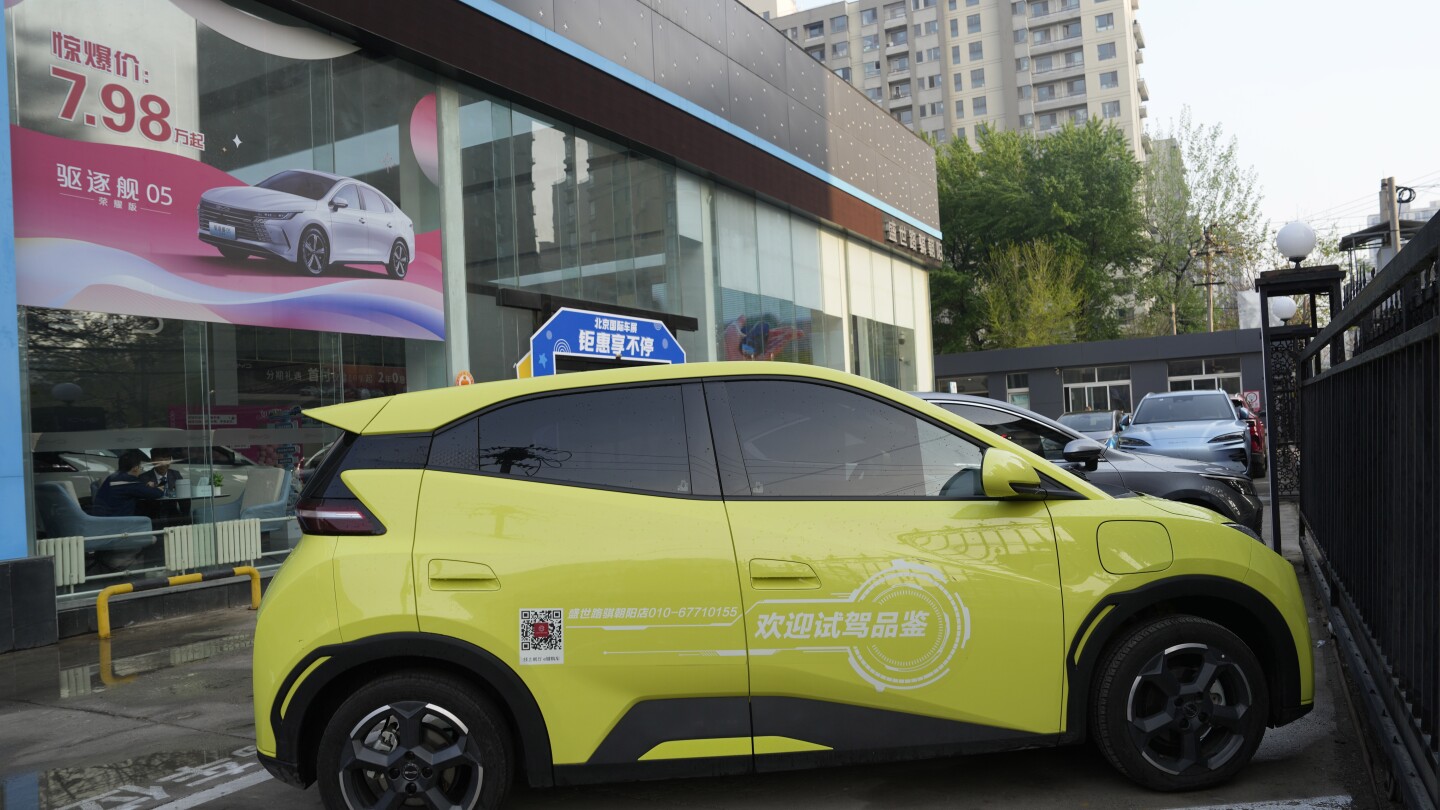A tiny, low-priced electric car called the Seagull has American automakers and politicians trembling.
The car, launched last year by Chinese automaker BYD, sells for around $12,000 in China, but drives well and is put together with craftsmanship that rivals U.S.-made electric vehicles that cost three times as much. A shorter-range version costs under $10,000.
Tariffs on imported Chinese vehicles probably will keep the Seagull away from America’s shores for now, and it likely would sell for more than 12 grand if imported.
But the rapid emergence of low-priced EVs from China could shake up the global auto industry in ways not seen since Japanese makers exploded on the scene during the oil crises of the 1970s. BYD, which stands for “Build Your Dreams,” could be a nightmare for the U.S. auto industry.
“Any car company that’s not paying attention to them as a competitor is going to be lost when they hit their market,” said Sam Fiorani, a vice president at AutoForecast Solutions near Philadelphia. “BYD’s entry into the U.S. market isn’t an if. It’s a when.”



Those are just excuses:
They might be used as excuses by a complacent industry, but they are not just excuses. They are also valid reasons for concern, and would still be so even if not used as talking points for Detroit lobbyists.
Regardless of that, China’s government has spent more than a few years subsidizing products and services in order to make their exports dirt cheap abroad, eventually making other nations dependent on them. (See also: the Belt and Road Initiative.) This fits the same pattern, and would still be a problem even if US auto industry protectionism didn’t exist.
Agreed, but once again, that doesn’t invalidate the problem that I mentioned. A foreign adversary having deep, real-time access to the nation’s infrastructure, traffic patterns, sensitive information revealed through conversations and cameras, etc. is a larger problem than the personal privacy issues that already exist domestically.
The difference lies in where the collected information goes. That might not matter to some people on a personal level, but on a national scale, handing all that info to an adversary nation is cause for concern.
As opposed to them buying it from data brokers? There’s a difference in responsiveness and I’m sure data brokers make a pretense of anonymizing that will need a bit of adjustment, but I’m not convinced it’s as different as everyone is afraid of
That would also be a cause for concern. Both should be addressed.